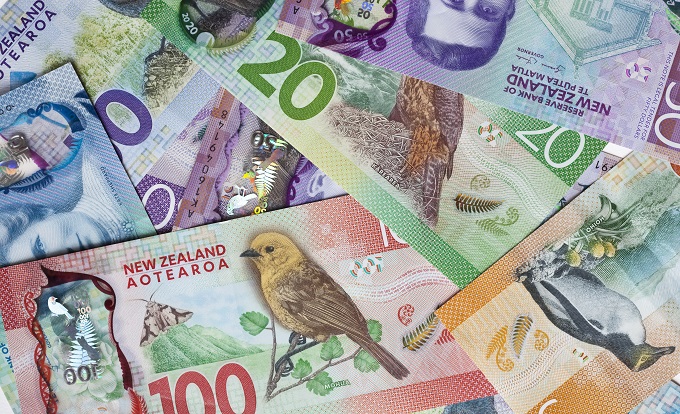

© enjoynz - stock.adobe.com
<h2><span data-contrast="auto">The government will cover the cost of fees and levies paid to the Teaching Council, announced Education Minister Erica Stanford last week. </span><span data-ccp-props="{}"> </span></h2>
<p><span data-contrast="auto">In a prebudget announcement at Boulcott School, Stanford announced there would be $53 million set aside to pay teaching fees, fulfilling one of National’s election promises in 2023. It is unclear whether this will be new funding or repurposed from education spending. </span><span data-ccp-props="{}"> </span></p>
<p><span data-contrast="auto">Teachers will save up to $550 when applying for registration or renewing their practising certificate, and the policy will be in place for the next three years. </span><span data-ccp-props="{}"> </span></p>
<p><a href="https://www.schoolnews.co.nz/latest-print-issue/" target="_blank" rel="noopener"><b>Read the latest print edition of <em>School News</em> online HERE.</b></a></p>
<p><span data-contrast="auto">&#8220;It was a pre-election promise that the National Party made about valuing teachers, and over the last 18 months we&#8217;ve asked a huge amount of teachers&#8230; So it was important to acknowledge that hard work and how much we value the profession,&#8221; said Stanford.</span><span data-ccp-props="{}"> </span></p>
<p><span data-contrast="auto">Stanford said she had been “combing through 26,000 lines of spend in the education budget&#8230; that means stopping doing some things and I’ll have more to say about that in the next month.”</span><span data-ccp-props="{}"> </span></p>
<p><span data-contrast="auto">PPTA Te Wehengarua President Chris Abercrombie said the union “wholeheartedly welcomes” the announcement. </span><span data-ccp-props="{}"> </span></p>
<blockquote>
<p><span data-contrast="auto">“The Government’s decision to pay our Teaching Council fees indicates that it realises it needs to do everything it can to keep teachers in the profession in the midst of a chronic secondary teacher shortage. Paying teachers’ Teaching Council fees lets teachers know their professional expertise is valued and provides an incentive to stay in the job.”</span><span data-ccp-props="{}"> </span></p>
</blockquote>
<p><span data-contrast="auto">Abercrombie said he expected the announcement would have the highest impact on new teachers, alleviating “a significant expense”. </span><span data-ccp-props="{}"> </span></p>
<p><span data-contrast="auto">Boulcott School principal Rachael Sole said “a lot of the staff here were really pleased.</span><span data-ccp-props="{}"> </span></p>
<p><span data-contrast="auto">“It&#8217;s an expense that they&#8217;ve had to pay in the past, a few hundred dollars, and it&#8217;s better in their pockets than going elsewhere. We&#8217;re not the highest-paid profession so having this little bonus is great,&#8221; she said.</span><span data-ccp-props="{}"> </span></p>
<p><span data-contrast="auto">The Teaching Council has </span><a href="https://www.schoolnews.co.nz/2025/03/consultation-open-for-teaching-council-fees-and-levy-changes/" target="_blank"><span data-contrast="none">recently proposed increasing</span></a><span data-contrast="auto"> the cost of their practising certificate applications and renewals from $464.37 and $512.37 to $501.74 and $553.58 respectively. This is an eight percent increase on the levy set in 2022. The Teaching Council cited inflation and changes to the volume of applications as reasons for the suggested increase. </span><span data-ccp-props="{}"> </span></p>
<p><b><span data-contrast="auto">Impacts on collective agreements</span></b> <span data-ccp-props="{}"> </span></p>
<p><span data-contrast="auto">Current collective teacher agreements include payments to cover Teaching Council fees. Renegotiations of collective agreements are due to be held later this year. </span><span data-ccp-props="{}"> </span></p>
<p><span data-contrast="auto">Sir Brian Roche, Public Service Commissioner, has said that he will take on responsibility for bargaining with teaching unions for the first time since 1997. The task is usually delegated to the Secretary for Education. </span><span data-ccp-props="{}"> </span></p>
<p><span data-contrast="auto">Roche wrote to the teaching unions last Friday, saying he wanted to balance the needs of the workforce with tightening financial pressures.</span><span data-ccp-props="{}"> </span></p>

Teacher guide for the new PAT tuhituhi | writing assessment for Years 5 to 10…
Banning AI won’t cut it, says one science teacher. So how can schools and teachers…
Are stressed teachers contributing to the dysregulation we see in classrooms? Rebecca Thomas asks in…
Henbury School Principal Sarah Corry offers a candid, heartfelt insight into leadership burnout, resilience, and…
Lithuania will be providing free AI technology to every secondary school in the country.
NZEI Te Riu Roa is considering legal action against the government for the disestablishment of…
This website uses cookies.